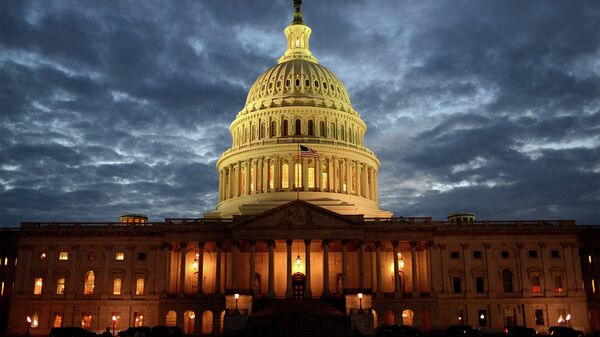While Greece is suffering from a protracted debt crisis, facing new tough reforms, the question arises whether if the United States will soon become incapable to handle its own growing debts, asks Romina Boccia, the Heritage Foundation's Grover M. Hermann Fellow in Federal Budgetary Affairs.
"The United States differs from Greece in important ways. The US economy is much larger and better diversified. More than half of the US debt is held by creditors within its borders, rather than by foreign entities. Moreover, the United States also creates its own money, enabling it to devalue its currency and debt to avoid defaulting on payments for a lack of cash," the analyst underscored.
Citing the Congressional Budget Office (CBO) report, Romina Boccia warned that US publicly held debt may reach 180 percent by 2039, adding that US debt is "already in the danger zone."
It should be noted that Greece's current debt amounts to 175 percent of GDP.
At the same time, another academic research paper has recently indicated that "economic growth slows significantly at high levels of public debt," the analyst stressed. According to the researchers, advanced economies with 85-90 percent of GDP level of debt and higher grow "more slowly annually than their lower-debt counterparts."
"Despite the differences, the fiscal pressures confronting the United States spring from sources similar to those afflicting Greece. Growing spending on public benefits threatens to overwhelm the US economy in the long term," Romina Boccia stressed.
On the other hand, former US presidential candidate Ron Paul also thinks that the Greek debt crisis could reflect in some way the US own future demise. However, Dr. Paul is lambasting Washington for its excessive military spending and an "imperial foreign policy."
"America will never get its fiscal house in order until we change our foreign policy and stop wasting trillions on unnecessary and unconstitutional wars," Ron Paul warned.
"Like Greece, America suffers from excessive welfare and entitlement spending. Reducing military spending and corporate welfare will allow the government to transition away from the welfare state without hurting those dependent on government programs," the former congressman emphasized.
US policy makers should rush to reconsider America's economic policies, experts say, warning that "he who hesitates is lost."





